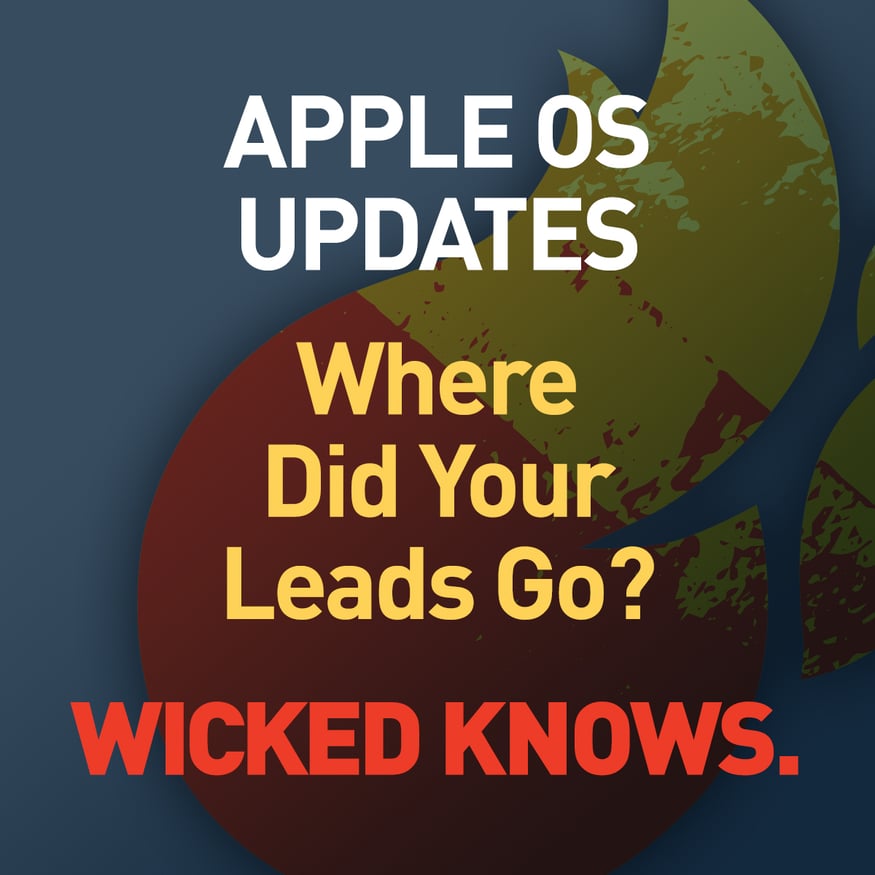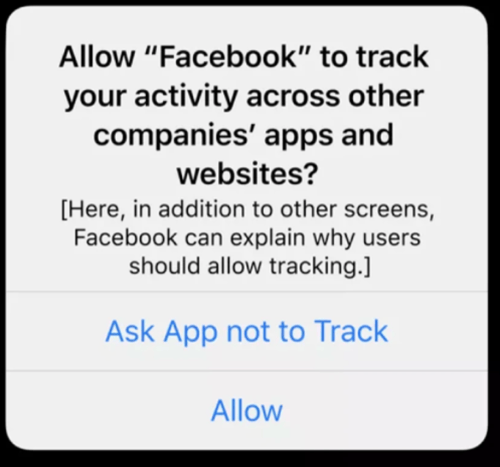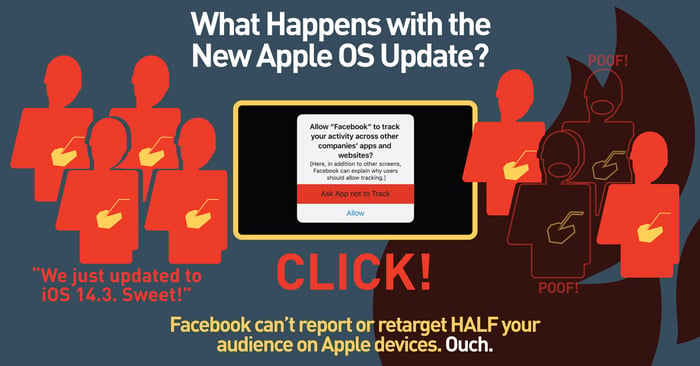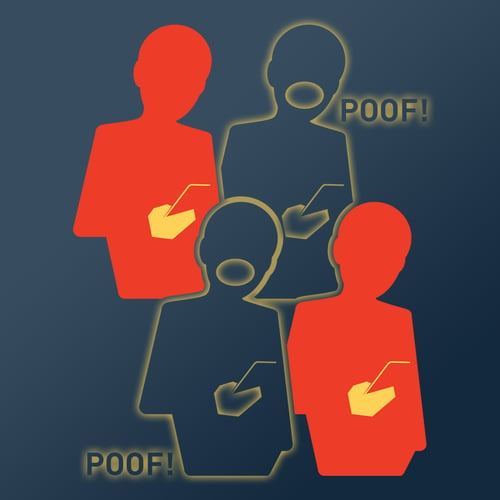ML Attribution & Consumer Insights: Depesh Mandalia & Wicked Reports
How to Scale Ad ROI Using Machine Learning and Attribution Habits
I recently chatted with Depesh...
Confidently scale winner and cut losers based on ROI and LTV.
Reverse engineer customer acquisition.
Honest conversions lead to increased revenue.
$2 billion in ad spend, $5 billion in attributed revenue
Detect repeat and subscription customers and attribute to marketing spend
Marketing attribution to increase Ecommerce ROI
Find lead sources that create subscription customers.
Connect marketing that leads to info & course sales.
Evaluate ROI and LTV of all channels.
See what others are saying about Wicked Reports!
Channel, campaign, ad, and targeting ROI, LTV, and CAC.
Turn data into profitable action with precise analysis steps and advice
One-click integrations with marketing, sales, and ad systems.
Customer lifetime value and behavior analysis.
High level insights and granular optimization actions.
Attribution that factors customer lifetime value, subscriptions, and lead gen.
Intuitive filtering and sorting that delivers answers.
Wicked detects and attributes conversions that scale revenue.
Wicked Reports vs Oribi, Attribution.io, and tracking pixels.
Advantages over HubSpot for multi-channel ecom marketers.
Multi-channel lifetime value attribution vs Facebook pixel issues
Multi-channel lifetime value attribution vs Google pixel issues
Wicked Reports vs Domo, Grow, Google Data Studio, TapClicks, NinjaCat, AdStage, and others

Apple is rolling out a new iOS14 update which will ask users for permission to track activity across the web.
Once an Apple user accepts the iOS14.3 update, they will get a prompt like this:

It’s likely that more than 50% of users will choose “Ask App Not to Track.”
When that happens, “3rd party data collectors” such as Facebook, Snapchat, Google, Pinterest, and other companies will not be able to use the user’s data for targeting, optimization, and reporting.
We know that 80% of Facebook traffic is mobile only, and more than 50% of mobile traffic uses iOS14.
That’s an indication the impact of this update on advertisers will be significant.
Justin checks his Facebook App on his iPhone right after he’s installed an update to iOS 14.3
He sees the prompt:

And clicks “Ask App not to Track.” Because it’s that easy to opt-out.
5 minutes later he clicks on an ad for GetMaineLobster.com in the FB app. He buys some tasty lobster.

Facebook can’t report it. No data. No retargeting. No optimization.
But wait! GetMaineLobster.com is using Wicked Reports.
Wicked tracks the campaign, ad set, and ad and identifies Justin one way or the other.
GetMaineLobster can use this data, the reports, and the attribution with Wicked Reports, or another option, as long as they are only using it for their own business.
The reason why Wicked Reports is able to collect and report that data is because Wicked uses 1st party data collection, instead of 3rd party “pixel” data collection used by Facebook.
It’s a safe bet to assume that ad performance will be volatile, especially during the first month of the change.
Your ad attribution in Facebook Ads Manager will be even less accurate than it is now.
Any user who “asks app not to track” will not be tracked by Facebook, so if they click, opt-in, purchased, ect it would not be counted in your attribution.
This means your actual ad performance will probably be higher than you can see in Ad Manager, but you’ll have no way to know unless you use Wicked Reports.
Facebook’s own PR indicates that revenue from ads for advertisers could drop as much as 60%.
Short answer: Yes, but only for non iOS14 users.
As more people opt-out of tracking on iOS14 devices, you will see reductions in the size of your app connections, app activity Custom Audiences, and even website Custom Audiences.
This will result in less effective retargeting and higher advertising costs.

This will help, but it won’t be perfect.
The Conversions API allows you to send conversion data to Facebook if you can capture the data Facebook needs, and configure your pixel & conversion integration to support de-duplication of conversions.
Facebook will get conversion data that it may be able to use for optimization, delivery, and reporting.
However, if the IOS user has opted out of tracking, Facebook cannot use the data. It can only use data that is from IOS users that have opted in, or non-IOS users.
Recall, 80% of Facebook traffic is mobile only, and IOS is by far the most dominant mobile user.
However, Facebook asks for conversion data to be uploaded within 1 hour or else delivery & optimization performance will degrade significantly.
If you have the Facebook pixel installed, and the Conversion API integrated, you need to de-dupe the data. The de-dupe of conversion data can take up to 48 hours. This means you run the risk of sending dupe data to Facebook that skews delivery & optimization.
I think they will improve this, but it’s the current situation advertisers must accept.
At least Facebook is working with your most important conversions.
Facebook will take this conversion data and attribute it however it sees fit.
In my opinion, Facebook will be starved for conversion data and thus will make good use of the data you send them via the Conversions API.
Of Facebook Users Are On Mobile
Of Facebook Mobile Users Are iOS
Facebook Estimates Won't Opt-In To Tracking
The biggest impact is going to be in measurement & reporting of ad performance in the Ad Manager.
Some significant changes:

Events will be limited to 8 total events per account.
There was some initial news from Facebook that if a user hits multiple events, for example Add to Cart and Purchase, only the highest event will be reported. However, we have confirmed with Facebook that all events are reported.
This is definitely an area you will want to watch in case you need to make changes to be compliant. If Facebook does decide to limit reporting to the highest priority event, this could have a dramatic impact on advertisers using custom conversions to help trigger retargeting, and also standard conversions to trigger retargeting and/or inform performance and optimization.
As more people opt-out of tracking on iOS14 devices, you will see reductions in the size of your app connections, app activity Custom Audiences, and even website Custom Audiences.
This will result in less effective retargeting and higher advertising costs.
If you are using Value Optimization, you will want to be aware of the following:
Dynamic ads audience sizes will decrease.
You will only be allowed to use 1 pixel per catalog.
URL redirects should be avoided.
There will be significant changes in the measurement of ad performance:
Reporting will be delayed significantly. Real-time reporting will not be supported, and data may be delayed up to 3 days.
For iOS 14 app install campaigns, conversion events will be reported based on the time that they are reported to Facebook by the SKAdNetwork API.
Web conversion events will be reported based on the time the conversions occur and not the time of the associated ad impressions.
Facebook will estimate results. For iOS14 app install campaigns, the SKAdNetwork API will report results to Facebook, aggregated at the campaign level. Statistical modeling may be used to account for results at the ad set and ad levels, unless the campaign is composed of a single ad set and ad. For web conversion events, statistical modeling may be used to account for conversions from iOS 14 users.
No access to demographic and device breakdown data. For both app and web conversions, delivery and action breakdowns, such as age, gender, region, and placement will not be supported.
Facebook is replacing the account-level attribution window with a new attribution setting at the ad set level that can be accessed during campaign creation.
In early 2021, attribution window settings for existing and newly created automated rules will no longer be supported, and a default window of 7-day click-through for non-iOS conversions and the SKAdNetwork window for iOS conversions will be implemented.
Wicked Reports is a requirement now for running any kind of ads.
- Bryce Christianson, PlusThis
I recently chatted with Depesh...